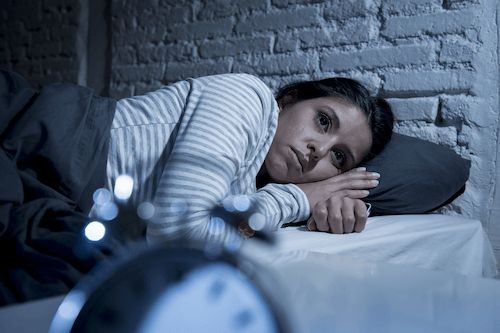Good sleep doesn’t just mean lots of sleep: it means the right kind of sleep. Sleep affects our ability to use language, sustain attention, understand what we are reading, and summarise what we are hearing.
These are four main factors that affect the quality of your sleep:
Health
Environment
Attitude
Lifestyle
Sleep has also been shown to protect the immune system. The amount that each person needs is different; however, it is recommended that a healthy adult should sleep, on average, between seven and nine hours a night.
The important thing is that you get good-quality sleep. The following advice can help to HEAL your sleep problems.
Health
Physical health problems can stop you from getting a good night’s sleep. So speaking to your GP or pharmacist about appropriate medication can help with this. Try to avoid taking the medication without speaking to a medical professional, as sometimes the medication itself can stop you from sleeping properly if it’s not right for you.
Mental health problems like anxiety and depression can also affect our sleep.
Environment
The bedroom should be somewhere that we associate with sleep. Where possible, you should try to remove distractions from your bedroom. It is better to watch TV, play computer games and eat in another room. This will allow you to relax with no distractions in your bedroom.
The backlit ‘blue light’ displays suppress Melatonin production – the hormone that helps you sleep; the suppression of Melatonin causes sleep disruption. You should stop using these devices two hours before you go to sleep to reduce their impact on your sleeping.
Although everyone is different and has their personal preferences, the common factors that can affect our sleep are light, noise, and temperature. Too much light or noise can prevent you from falling asleep or staying asleep. If you have sources of light and noise that you can’t control, such as light from a street lamp or noise from a neighbor’s music, you might want to use an eye mask or earplugs.
The temperature of the room is also important. A heater or thicker duvet can help if you regularly find yourself too cold at night; a thinner cover or opening a window can help if you’re too hot.
Attitude
Lying awake in bed, particularly before an important day, can make us worry. However, this worry then makes it harder for us to get to sleep. Progressive relaxation techniques can help you to relax and unwind at these times. Alternatively, instead of staying in bed and getting more and more frustrated, you could get up and make yourself a warm drink, such as warm milk, and return to bed when you feel sleepier.
If you continue to have sleep problems for more than a month, you could speak with your GP about the possibility of using cognitive behavioral therapy (CBT). CBT is used to treat some mental health problems. It can encourage a more positive attitude, which can then help to break the cycle of negative thoughts causing your lack of sleep, and thus can help you to develop a healthier sleep pattern. Alternatively, practices like mindfulness (a type of meditation) can help by reducing stress and anxiety levels.
Lifestyle
There are several things that you can do every day to improve the quality of your sleep.
Eating rice, oats, and dairy products can produce chemicals that increase our desire to sleep. However, food and drink containing lots of caffeine or sugar can keep you awake, so drinking less tea and coffee and eating less chocolate and other sugary foods late in the day might help you to sleep better.
Although alcohol can make you feel tired and can help you get to sleep, it often impairs the quality of your sleep and makes you more likely to wake up during the night as the effects wear off, and you may need to go to the toilet frequently or get up to drink water if you are dehydrated.
Exercising regularly is thought to help us sleep, as, among other things, it can help to reduce anxiety and relieve stress. It is, however, important to exercise at the right time. Exercising earlier in the day is better, as exercise increases the body’s adrenaline production, making it more difficult to sleep if done just before bedtime.
Here are some more tips:
- You should stick to a sleep schedule. Go to bed and get up at the same time every day. Try to limit the difference in your sleep schedule on weeknights and weekends to no more than one hour. Being consistent reinforces your body’s sleep-wake cycle.
- Don’t go to bed hungry or stuffed. In particular, avoid heavy or large meals within a couple of hours of bedtime. Your discomfort might keep you up.
- Long daytime naps can interfere with nighttime sleep. If you choose to nap, limit yourself to up to 30 minutes and avoid doing so late in the day. If you work nights, however, you might need to nap late in the day before work to help make up your sleep debt.
- Try to resolve your worries or concerns before bedtime. Jot down what’s on your mind and then set it aside for tomorrow. Stress management might help. Start with the basics, such as getting organized, setting priorities, and delegating tasks. Meditation also can ease anxiety.

